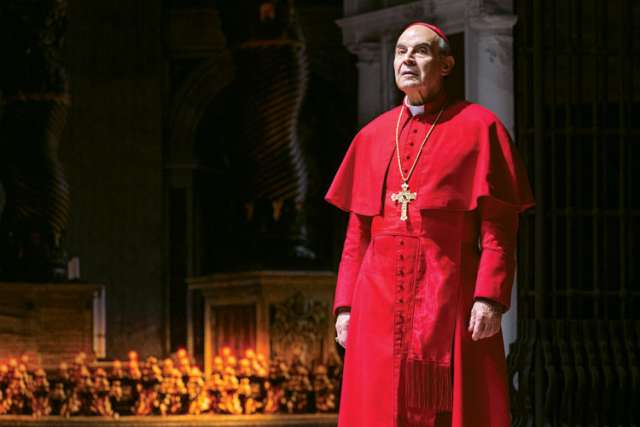Starring British actor David Suchet, famous for his on-screen role as Agatha Christie’s Hercule Poirot, this fictional play is advertised as a mystery, but unfolds more like a power struggle.
Suchet plays Cardinal Giovanni Benelli who recounts a crisis of faith as he confesses his role in the death of Pope John Paul I. John Paul was a liberal pope surrounded by a conservative Curia. Thirty-three days into his reign as pontiff, he was found dead in his bedroom chambers. With no autopsy ever completed on the body, conspiracy theorists have proposed that the man the public called the people’s pope was murdered. These rumours are the foundation for a drama set in a unique institution.
“No other Church in the world has its own state. It even has its own passports, its own bank. It’s an entity unto itself,” said Suchet on why the Vatican is so fascinating. “It’s strangely secret and I think, therefore, it’s strangely tantalizing to the world. It’s a very strange situation for a religious body to find itself in with that much power.”
One of Benelli’s main struggles as a man of God and caretaker of Christ’s Church is the question of how one can exercise power and still live the simple life of Christ. In his constant back-and-forth with his confessor, he acknowledges his sins of pride and envy.
The play’s Canadian talent includes Nigel Bennet as Cardinal Villot who sabotages Pope John Paul’s liberal reforms, Roy Lewis as the African Cardinal Bernardin Gantin and Philip Craig as The Confessor.
The Last Confession was first performed at Chichester Festival Theatre on April 27, 2007. Straight from the U.K. on its current tour, the play will bring its case of intrigue, its highlight of John Paul’s papacy and its theme of unburdening the conscience to Los Angeles and Australia after its six-week run in Toronto ends June 1.
“Confession, as much as anything else, is finding someone to whom we can be accountable for as another human being and to have the courage and the openness to admit what we have done wrong,” said Suchet. “The thing that really distinguishes Christianity as a religion is that with all our failings, with all our weaknesses, with all our sins, we are offered love and forgiveness. It’s the confessing of our sins and being given absolution by representatives of God within His Church that gives us that forgiveness. And that’s a very blessed thing to receive.”
For more information, visit www.mirvish.com.


